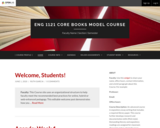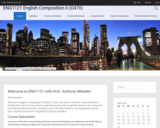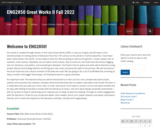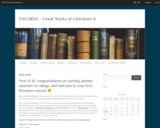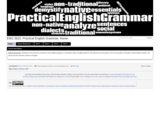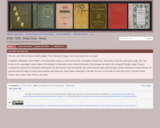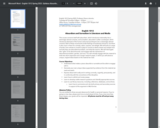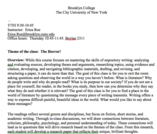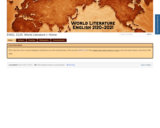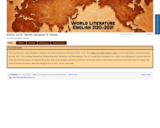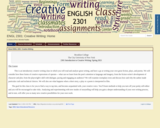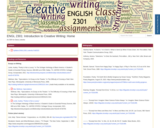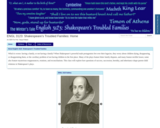Theme of the class: The Horror!
Overview: While this course focuses on mastering the skills of expository writing: analyzing and evaluating sources, developing theses and arguments, researching topics, using evidence and citation, developing, and navigating bibliographic materials, drafting, and revising, and structuring a paper, it can do more than that. The goal of this class is for you to exit the room asking questions and observing the world in a way you haven’t before. What is literature? Why do people write and why do people read? What is its purpose in our society? If you do not see a place for yourself, the reader, in the books you study, then how can you determine why they say what they do and whether it is relevant? The goal of this class is for you to find a place in the world of literature by questioning the message every piece of writing transmits. Writing offers a way to express difficult painful, beautiful ideas in the world. What would you like to say about these messages?
The readings reflect several genres and disciplines, but focus on fiction, short stories, and academic writing. Through in-class discussions, we will draw connections between literature, criticism, philosophy, psychology, and personal understanding of today. These connections will lead us to questions that will drive research based on the themes of the class. From this research, each student will develop a research paper that reflects their unique, brilliant thoughts.
Course Objectives
Students who successfully complete this course will be able to:
• Read and think critically
• Understand how language operates
• Express ideas–both orally and in writing–correctly, cogently, persuasively, and in conformity with the conventions of the discipline
• Conduct research and write a research paper
• Display familiarity with literary works by a variety of authors in a variety of genres.
• Be able to offer an extended discussion in writing of two or more texts and authors in relation to each other.
• Demonstrate the ability to analyze and interpret based on careful attention both to the detail and overall design of a literary work.
• Demonstrate an understanding of the role of context in determining meaning.
